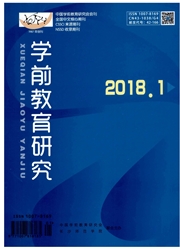

 中文摘要:
中文摘要:
基于学前教育服务质量形成的非公开性及其质量管控中存在的信息不对称等问题,政府购买公共服务背景下,普惠性学前教育服务质量的管控需要构建“幼儿园一地方政府部门一上级政府”三者之间的博弈模型,并充分考虑和分析各博弈主体策略选择的关键影响因素。幼儿园、地方政府部门、上级政府是否会严格规范自身行为进行服务质量管控,主要取决于各自的管控成本、管控力度以及进行管控的机会成本。政府应从完善信息结构与相关管控制度和措施入手,以充分履行政府管控职能为依托,以保护广大幼儿及其家庭为出发点,构建多主体参与的普惠性学前教育服务质量管控体系。
 英文摘要:
英文摘要:
The complexity of preschool education service and the exclusivity in the service quality formation cause the information asymmetry during the quality control process of preschool education. Kindergartens that directly provide the service are inclined to seek for improper profit with their advantage in information, while children's families and the public who are at disadvantage in information are hard to get the right they deserve. Based on that, and in view of the quality control issue for preschool education service, a model of game theory among kindergartens, local government and their superior government is constructed, and critical factors influencing different stakeholders' choice of strategies are then analyzed. It is shown that whether these three stakeholders will strictly regulate their own behavior or not mostly depend upon the cost, the intensity and the opportunity cost in their own quality control process. Therefore, the government should construct multi-subject participation in the Pratt & Whitney preschool education service quality control system, starting from the improvement of information structure and the management system and measures related to preschool education, to fully implement the functions of government control, and protect the children and children's family as the starting point.
 同期刊论文项目
同期刊论文项目
 同项目期刊论文
同项目期刊论文
 期刊信息
期刊信息
